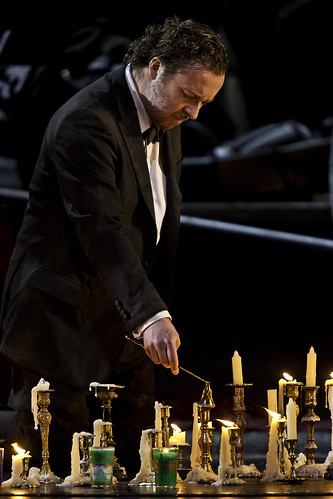
By Act II, however, it has crumbled to nothing revealing the shattering of certainties, and by Act III it is in an advanced state of decay.

When he is accepted back into the fold on his return to the Wartburg, his friends enter this stage area again implying that it signifies not a specific place, but a feeling of ease and security. The Venusberg is presented as a smaller version of the Royal Opera House stage, which means that when Tannhäuser leaves the goddess the curtain, quite literally, falls on her. Tim Albery’s 2010 production, now enjoying its first revival, uses stages as a metaphor for artifice. In the process, she has realised the miracle that was required to save Tannhäuser’s soul, so he goes to his own death knowing Elisabeth’s depth of love for him. In despair Tannhäuser considers returning to the Venusberg, but then news arrives that Elisabeth has died. The Landgrave of Thuringia, however, orders Tannhäuser to go on a pilgrimage to Rome, but when he does so even the Pope proclaims it would take a miracle to save him from hell. While Tannhäuser’s friends all compare love with fountains of pure water or see it as something chaste, he keeps interjecting that only he knows true love, which equates to the carnal delights he enjoyed with Venus.Įveryone is horrified at the sins he has just confessed to committing, and only Elisabeth’s intervention prevents them from attacking him. The task is to present a song that explains the essence of love, and Elisabeth will award the winner any prize he wishes.

Tannhäuser is subsequently reunited with his friends, and returns to his homeland of the Wartburg where he enters a song competition.


 0 kommentar(er)
0 kommentar(er)
